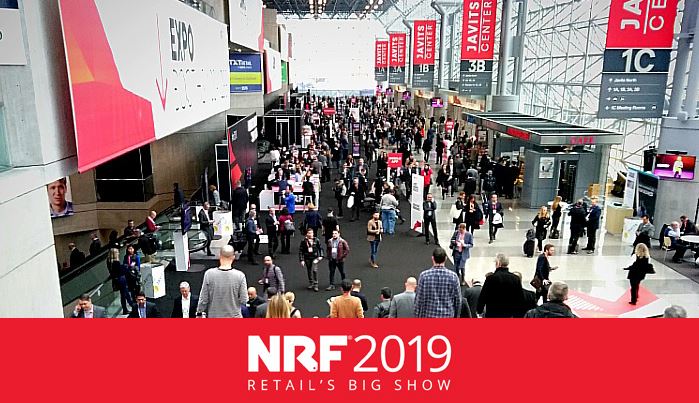The retail market has never been this fiercely competitive. Right now, just making a sale is not enough. Today, building lasting relationships with your customers is key to sustained success. Modern clienteling, focusing on personalized experience, paves the path to achieving this lofty goal for your retail.
A 2019 report by Shopgate (Business Wire, via Internet Archive) evaluated that nearly half (46%) of participating retailers rank clienteling among their top three preferred technologies, considering consumers’ growing expectations for an omnichannel shopping experience.
Let us explore how personalization through effective, proven clienteling strategies can meaningfully contribute to enhancing customer relationships, foster lasting loyalty, and ultimately drive long-term growth for your retail business.
What is Modern Clienteling?
Modern clienteling enables retailers to develop deeper relationships with shoppers by understanding their needs beyond basic customer service. Originating in luxury retail (Read More: McKinsey), it has evolved with the rapidly advancing retail technology to be more data-reliant and focused on customer experience (CX).
Today, clienteling strategies involve digital tools like CRM (Customer Relationship Management) and data analytics software to collect, process, and analyze customer information. In return, businesses gain the confidence to provide tailored recommendations and proactive support to shoppers across multiple touchpoints.
The TL;DR is that clienteling shifts the focus from impersonal sales tactics to building authentic connections through personalized interactions, boosting customer retention and fostering long-term loyalty.
Clienteling vs. Customer Service: What’s the Difference?
Both are crucial for customer satisfaction. However, clienteling differs significantly from customer service. Traditional customer service involves reacting to customer inquiries or issues. In contrast, clienteling is proactive, as it focuses on building ongoing engagement and anticipating customer needs through personalization. In essence, it is building a strong connection rather than simply resolving problems, deepening customer relationships with the brand more profoundly.
Why Personalization is Key to Enhancing Customer Relationships
Modern retail is predominantly omnichannel, meaning generic customer interactions don’t cut it anymore. The Pareto Principle highlights that a significant portion of revenue often comes from a small percentage of loyal customers (Forbes). Shoppers yearn for bespoke, personalized experiences, and clienteling strategies that take it to heart are crucial for enhancing customer relationships.
Retail businesses can utilize personalization to cater to the needs of these high-value individuals, making them feel valued and understood. Customers leave the store satisfied and develop stronger emotional ties with the brand, leading to greater loyalty and repeat purchases. Clienteling strategies built on personalization are, therefore, fundamental to long-term success.
Step into the Future of Personalization with Veras Retail.
5 Key Clienteling Strategies for Building Lasting Customer Bonds
Below are some key clienteling strategies retail businesses can implement. These comprehensive tactics work together to build enduring customer bonds and sustained loyalty:
- Data Collection and Analysis: Gather and analyze customer data, including purchase history, preferences, and communication styles, to gain valuable insights for personalization.
- Tailored Recommendations: Offer tailored product suggestions based on individual customer profiles, past purchases, browsing behavior, and expressed interests.
- Proactive and Personalized Outreach: Reach out to customers with relevant promotions, such as new product arrivals, exclusive offers, or personalized greetings for special occasions.
- Create Memorable Experiences: Walk the extra mile to make each interaction feel valued by the customer, whether personalized in-store assistance or tailored online experiences.
- Leverage Communication Channels: Communicate with customers through their preferred methods, be it email, SMS, phone, or social media, to ensure your outreach is well-received.
Veras Affinity is Here to Enhance Your Clienteling
To implement successful clienteling strategies in a consumer-centric world, retail businesses must leverage modern, more capable, data-driven solutions. After all, having access to real-time customer data is key to making every interaction between associates and customers meaningful and not just transactional.
Take Veras Affinity, for instance. It is our AI-powered clienteling tool designed to empower store associates with the insights they need to deliver exceptional, personalized service. Its intelligent engine refines product recommendations based on pre-defined preferences and past customer interactions.
By harnessing omnichannel customer data, frontline sales staff can access smart, contextual insights right at their fingertips. And thanks to its seamless integration with mPOS systems, Veras Affinity makes it easier to deliver tailored shopping experiences, no matter where customers shop.
Frequently Asked Questions
1. What specific skills and training are essential for retail staff to excel at clienteling?
Strong communication skills, attentive listening, product knowledge, and rapport-building abilities will greatly benefit retail staff. Training should focus on personalization techniques, using clienteling tools, and understanding customer preferences.
2. How can clienteling strategies be integrated with broader marketing automation efforts?
Clienteling insights can inform marketing automation campaigns. They allow for more targeted and personalized email marketing, social media engagements, and miscellaneous outreach efforts based on unique customer preferences and purchase history.
3. What are some best practices for handling customer data privacy when implementing clienteling strategies?
Maintaining transparency with users about data collection and usage is very important. To build trust while enhancing customer relationships, retailers must obtain explicit consent, ensure data security, and comply with established privacy regulations.
4. How user-friendly is a clienteling tool like Veras Affinity for store associates with varying levels of tech proficiency?
Veras Affinity is designed with an intuitive, game-like interface to ensure ease of use for all store associates, regardless of their technical background. It facilitates quick adoption and effective utilization.
5. What customer data does Veras Affinity typically utilize to generate personalized recommendations and insights for associates?
Veras Affinity leverages various customer data points, including in-store interactions, past purchases, stated preferences, and milestones like birthdays and anniversaries, to provide relevant, contextual recommendations.




